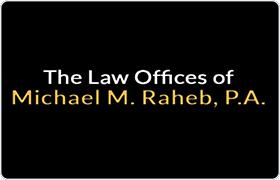Pineland White Collar Crime Lawyer, Florida
Sponsored Law Firm
-
 x
x

Click For More Info:
-
Law Offices of Michael M. Raheb P.A.
2423 First St Fort Myers, FL 33901» view mapCriminal Defense Law Legal Problem? Call Us 24/7
At the Law Office of Michael M. Raheb, we strive to ensure each of our clients receives the individual attention and representation necessary to obtain an optimal outcome.
800-890-8981
Rita Noelle Charlet
Antitrust, Constitutional Law, Traffic, White Collar Crime
Status: In Good Standing
FREE CONSULTATION
CONTACTFREE CONSULTATION
CONTACTScott Thomas Moorey
White Collar Crime, DUI-DWI, Criminal
Status: In Good Standing Licensed: 27 Years
John D. Mills
Divorce, White Collar Crime, DUI-DWI, Criminal, Personal Injury
Status: In Good Standing Licensed: 35 Years
Ian F. Mann
Traffic, Whistleblower, White Collar Crime, DUI-DWI
Status: In Good Standing Licensed: 29 Years
 Michael M. Raheb Fort Myers, FL
Michael M. Raheb Fort Myers, FL Practice AreasExpertise
Practice AreasExpertise
